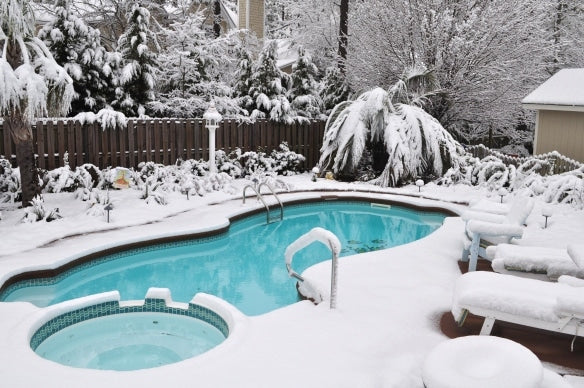(818) 436-2953

Preparing for Leaking Pools in Winter
It’s August. Kids are still out of school, families are away on vacation and we’re thinking about the upcoming change of season. Pretty soon, families will be preparing for schools to resume and when that happens, swimming pools are used less frequently. That’s a tell tale sign that the next busy season for swimming pool leak detections is approaching. Time to prepare for leaking pools in winter.
If there’s a leak in a pool, the homeowner is more likely to begin noticing water loss due to less usage of the pool. If the pool has a leak and an autofill and the pool was used more frequently in the summer, the homeowner may soon begin receiving higher than average water bills. Soon after that, the weather will begin changing. Homeowners in different areas will be getting ready to close their pools for the winter.
After a pool is closed for the winter, if it’s noticed to be leaking and the owner doesn’t do anything about it, this can lead to much larger problems. When a leaking pool is covered, weight on the cover from leaves, rain, snow, etc. can cause the cover to fall into the pool. The cover relies on the water beneath to support it. Mesh covers (even though they’re mesh) can have problems as well. When the water level in the pool drops about a foot or so, and heavy snow or ice accumulates on the cover, the mesh cover straps and springs may lose form or even break.
For pools with vinyl liners, if the leak is not tended to and too much water leaks out leaving the liner exposed, the liner may relax, shrink and pull away from the pool and floor. The cold weather adds to this making it worse.
When a pool is leaking, the force of gravity will naturally pull the water down. Pools in low lying areas which are leaking and are constructed of gunite, shotcrete, concrete, etc. can have a risk of popping out of the ground. This is usually due to hydrostatic pressure, water under the pool.
Even worse, when excess water in the ground surrounding the pool freezes, it can cause the deck to lift. Concrete isn’t made to be lifted and lowered by mother nature’s freezing temperatures and this up and down movement may also damage joints between deck slabs, pool pipes, coping, etc. When excess water causes the soil to erode around the pool and under pool decks, additional structural problems may occur as dirt is slowly washed away.
When it’s the winter season and your customer calls you about their leaking pool, you’ll be glad you’re prepared. While it’s still warm outside is the time to get familiar with LeakTronics so you can stay busy when others will be hibernating.